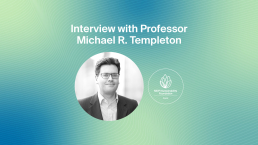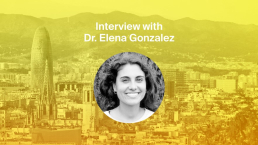
MDPI Awards—Recognition and Funding for Scientific Advancement
The MDPI awards scheme was set up in 2016 and, since, a total of 550 prizes have been granted.
In order to acknowledge the talent of the academics who publish in our many journals, and with a view to inspiring and supporting the academic community, we allocate these awards to outline the impacts that various individual works have made in their respective fields.
Some of these awards are on a nomination basis, where colleagues and/or supervisors of the nominee highlight them as a potential winner. Others are chosen by the respective editorial committees from all of the papers published within the scope and timeframe of the award, meaning that there is no opt-in required for those who wish to enter, only a submission to MDPI.
Benefits of MDPI Awards
Among the great number of awards available, the most frequently awarded are travel awards and young investigator awards. Whereas travel awards provide funding for academics to present their work at a chosen international conference, young investigator awards are given in recognition of excellence in a particular field of research.
There are many benefits to winning these awards. The winners often receive a monetary bonus, as well as the recognition and prestige that come with having one of the titles, ranging from “Young Investigator” to “Outstanding Reviewer” in various fields and journals.
Interview with Dr. Florent Poux
We asked Dr. Florent Poux, Remote Sensing Travel Award and IJGI Jack Dangermond Award winner, and Dr. Carles Galdeano, Molecules 2019 Young Investigator Award winner, about their experiences and how winning has helped them with their objectives in academia.
Dr. Florent Poux currently works as an adjunct professor in charge of 3D geodata at the Geomatics Unit, University of Liège. He is the CEO of Geovast 3D, a company that provides point cloud processing solutions, as well as training programmes at the 3D Geodata Academy. In 2020, he won the Remote Sensing Travel Award and the IJGI Jack Dangermond Award. Speaking about both awards, Dr. Poux said that he was ‘humbled’, ‘really surprised’, and ‘didn’t expect such a recognition’.
Receiving the MDPI awards
He also emphasises that the awards are a great source of inspiration and motivation for him. ‘Having recognition from my peers, it’s mostly people I admire, people I look up to. It’s very important and super motivating. I still cannot really believe it. For me, it’s a huge mark of recognition and I’m really humbled by this.’ He has already received praise and congratulatory wishes from his colleagues all over the world. There is also the potential for career-long opportunities, which Dr. Poux has already seen in a ‘higher visibility of [his] research’ and more ‘project propositions’ than ever before.
As part of the Remote Sensing Travel Award, Dr. Poux had his fees for this year’s virtual GeoInfo conference paid. He will also be funded to go to the physical conference in 2021. As for the IJGI Jack Dangermond Award, he will receive a grant of 10,000 USD to share with his research colleague Roland Billen. ‘Having the possibility to have some kind of external financing, like what MDPI provides, is immensely helpful. We rely, as part of a public research institute, on the public money, but that’s very rare, or the funding gets lower and lower.’
On collaboration
Dr. Poux also expressed that collaboration is an important part of research. He added, ‘When you do research, you always kind of feel a bit alone, especially in this context of corona, where you don’t have face-to-face contact.’
As for the future of his research and the field as a whole, Dr. Poux explained that there are many exciting developments to come. ‘Right now, I believe that the semantic segmentation will be pushed more towards benchmarking, better performances, better results and more robust approaches.’
‘Virtual reality and augmented reality already provide new tools and techniques, but I think pushing more in the direction of integrating the semantics with the geometry will create new ways of interactions.’
‘It’s evolving so fast’, he added, and ‘the drone industry as well as the robotics, construction, and architecture industries have massive interest in research outcomes’. In construction, for example, the developing software could be used to intelligently estimate a quotation for the work to be completed for a customer, or how many chairs would be able to fit in a room.
‘It’s just a matter of getting the reality into a high-level model that is usable by agents.’
In his opinion, the private research world is starting to have an edge over the public research world, but he emphasises the importance of innovation over business gains. ‘We have a lot of things to solve’, he says, especially when it comes to the environment. ‘I really hope that the research will continue, and funding will continue, so that we can continue, as researchers, to do great things.’ He praised MDPI’s fast rate of publication and its ‘open access’ nature.
Outside of research, Dr. Poux enjoys reading, both inside and outside of his field, has two young daughters, and likes to ski.
Interview with Dr. Carles Galdeano
Dr. Carles Galdeano is a Serra Hunter professor at the University of Barcelona. He won the Molecules 2019 Young Investigator Award after being nominated by his PhD supervisor. He has worked at various universities in the US, UK and Europe, including the University of Cambridge and Virginia Tech. His current research aims to develop novel drugs to fight cancer and Alzheimer’s disease, as well as to fulfill various unmet medical needs. His team hope to achieve this using the innovative process of targeted protein degradation.
Upon hearing the news of winning in April 2020, he explains that he was ‘very happy’, but ‘even happier because of the circumstances’ of the current worldwide pandemic. He immediately called Dr. Muñoz-Torrero, who nominated him, to let him know and express his excitement. He described the award as ‘a recognition of the sacrifice of pursuing a scientific career’ that he, and other researchers in his field, have made, explaining that the award makes his research more accessible to his friends outside of academia. Apart from this recognition, Dr. Galdeano also received a monetary grant of 2000 CHF as part of the award.
Targets for Alzheimer’s disease
Dr. Galdeano and his collaborators have recently validated a new target for Alzheimer’s disease, an event which has had a lot of publicity, since it is ground-breaking research that has the potential to lead to an effective cure for the disease. Obviously, it is by no means easy to obtain these results. ‘This is hard work. You have to try and try and try,’ he said. ‘What drives me is passion. Sometimes I say that my hobby is to be in the lab.’ This hardworking trait is something that he shares with all MDPI award winners, making winning a true indicator of success.
‘We have to be very proud of this work,’ he says, and describes the pursuit of research that he loves that also cures people of disease as ‘a win-win-win option’, sharing that he feels lucky to be doing a job that he enjoys every day.
The award also ‘helps you to be connected with other researchers, to make your name known […] increase your networking.’ In a broader sense, Dr. Galdeano highlighted the vital importance of working in tandem with other researchers. ‘Collaborations are needed for everything in science. You can have your own ideas, you can have the best ideas in the world, or in whatever field, but it’s technically impossible that you can control all the techniques, or all of these disciplines.’
‘If we want to do big things in science, we have to collaborate.’
Dr. Galdeano also praised MDPI’s speed of publication. ‘This is very important for science, to get things out as soon as possible.’
Outside of research, Dr. Galdeano likes meeting with friends and cooking. He has a 4-year-old son and really enjoys family time. He also likes travelling, holidays and watching football, especially Barcelona matches.
Learn more about MDPI Awards and other benefits
If you want to learn more about MDPI Awards and the other benefits we offer, see our article MDPI Supports Scientific Communities.










